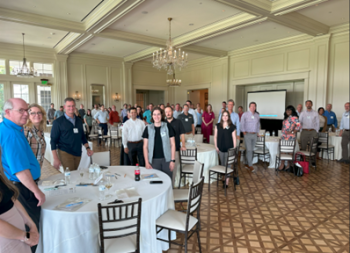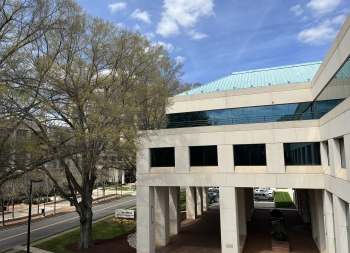Newly Added Rule 26(b)(4)(D) of the South Carolina Rules of Civil Procedure
Excluding Expert Exchanges: Protecting Attorney-Expert Communications
Recently, the South Carolina Rules of Civil Procedure were amended to add a protection that is already recognized by federal courts: the Attorney-Expert protection.
The newly added Rule 26(b)(4)(D) of the South Carolina Rules of Civil Procedure, which is short-titled, “Trial-Preparation Protection for Communications Between a Party’s Attorney and Expert Witnesses,” creates an important discovery and evidentiary exception to permit the open flow of communications between attorneys and the experts retained to support their clients’ claims or defenses. Rule 26(b)(4)(D) provides that Rules 26(b)(3) & (b)(4)(A) of the South Carolina Rules of Civil Procedure shall extend to “protect communications between the party’s attorney and any witness designated as an expert, regardless of the form of the communications, including draft reports,” other than materials falling within three exceptions enumerated in Rules 26(b)(4)(D)(i)-(iii).
Per the exceptions, the protections afforded by Rule 26(b)(4)(D) will not cover communications that 1) “relate to compensation for the expert’s study or testimony,” 2) “identify facts or data that the party’s attorney provided and that the expert considered in forming the opinions to be expressed,” or 3) “identify assumptions that the party’s attorney provided and that the expert relied on in forming the opinions to be expressed.” Absent these exceptions, communications between attorneys and the experts retained for their clients can be protected by Rule 26(b)(4)(D).
Rule 26(b)(4)(D) highlights the need to retain an attorney early in the claim handling process, especially when experts are needed to evaluate liability, assess exposure, or to develop the facts and circumstances surrounding an alleged occurrence. Retaining an attorney early allows the retained attorney and retained expert to freely discuss the claim without the worry of such communications becoming exposed at a later stage of litigation. Without an attorney to discuss the matter with the expert, communications with an expert could be potentially used during a deposition, mediation, arbitration, or trial.
Additionally, while Rule 26(b)(4)(D) is new, it may be applied to older cases that are still pending. Therefore, it is crucial to evaluate the current stage of the discovery process for all open, active litigation cases to determine whether any attorney-expert communications can be protected from discovery.



